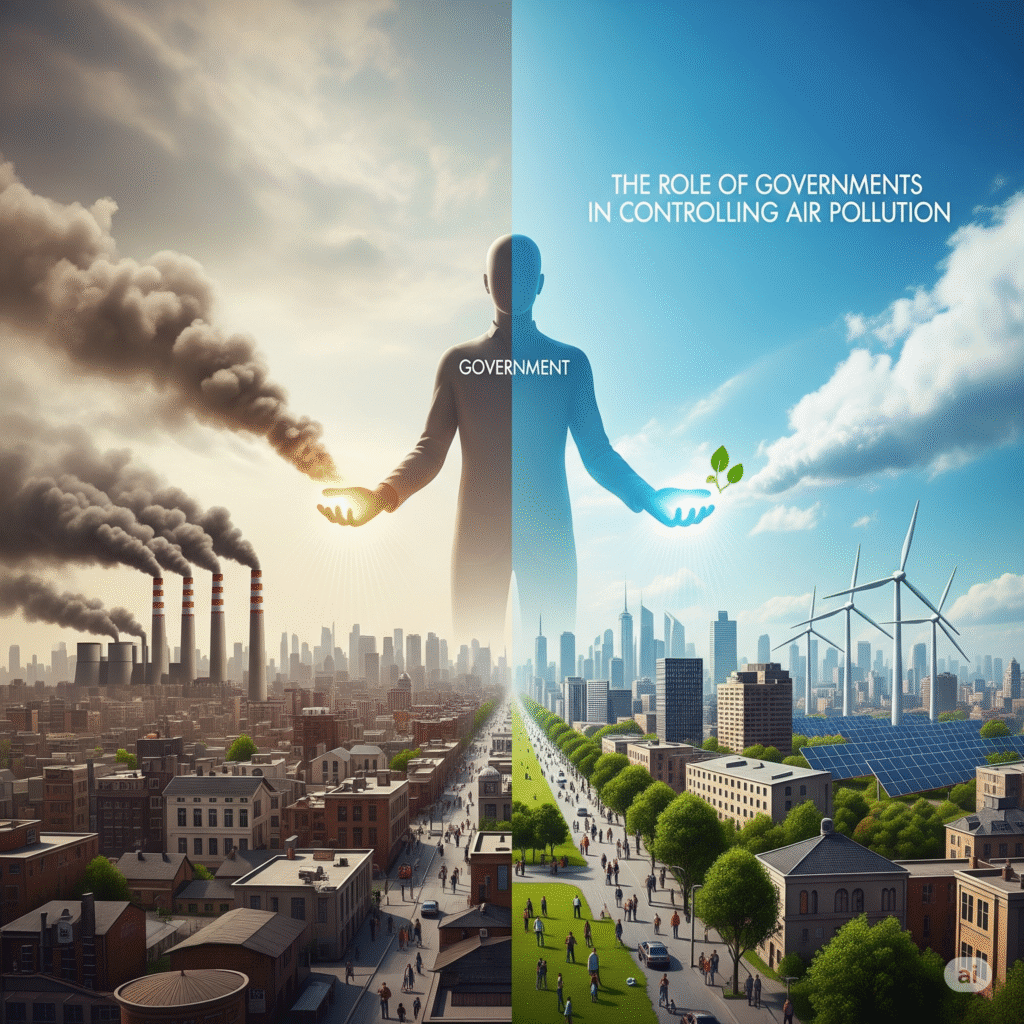Why Government Role is Important
Air pollution is not just an individual problem — it affects entire cities, countries, and even the planet 🌎. While people can take steps to protect themselves, the real change must come from governments. Why? Because governments make the rules, set limits, and ensure industries, vehicles, and citizens follow them.
Without strong government action, pollution would rise endlessly, harming human health, animals, plants, and even the climate 🌍🔥.
🏛️ 1. Making Environmental Laws
Governments around the world create laws and rules to reduce pollution. For example, they can:
- Set limits on factory emissions 🏭
- Ban burning of harmful fuels
- Control the use of plastics 🚯
- Punish industries that break pollution laws
These laws ensure that companies and citizens follow eco-friendly practices. Without laws, pollution would go unchecked.
🚗 2. Regulating Vehicles
Vehicles are one of the biggest sources of air pollution 🚘💨. Governments introduce strict rules for car emissions and encourage the use of electric vehicles ⚡. In many cities, policies like odd-even car rules are applied to reduce traffic pollution.
Public transport systems 🚆🚌 are also improved so fewer people use private cars, which helps reduce the number of vehicles on the road.
🌳 3. Promoting Green Initiatives
Governments also promote tree plantation drives 🌱🌸, create more green parks, and support eco-friendly energy like solar power ☀️ and wind power 🌬️. Trees act as natural air purifiers, so campaigns like Van Mahotsav in India encourage people to plant more trees.
By investing in renewable energy, governments reduce the need for coal and other polluting fuels.
📢 4. Running Awareness Campaigns
Rules alone are not enough. People need to know why pollution is dangerous. That’s why governments run public awareness campaigns 🗣️📺. These campaigns educate citizens about:
- Using eco-friendly products
- Reducing waste
- Avoiding firecrackers during festivals 🎆
- Protecting health on high AQI days
When people understand, they are more likely to follow eco-friendly habits.
🧪 5. Monitoring and Research
Governments set up monitoring systems to track air quality in real time 📊. They also fund research to develop better technology for pollution control. For example, real-time AQI monitors are installed in cities so people know the air quality.
You can also check live AQI updates anytime on <a href=”https://aidailydash.com” class=”cmenu-link”>aidailydash</a> 🌼✨.
🌍 6. International Cooperation
Air pollution does not stop at borders. Governments across countries must work together 🤝🌎. International agreements like the Paris Climate Agreement encourage countries to reduce emissions and share clean energy technologies. This teamwork is necessary to protect the entire planet.
🌟 Final Thoughts
The role of governments in controlling air pollution is huge. By making laws, controlling vehicles, planting trees, raising awareness, and working globally, governments can bring positive change. But people also need to cooperate — following rules, using eco-friendly practices, and supporting clean energy.
Together, with both citizens and governments acting responsibly, we can build a cleaner, greener, and healthier future 🌱💚

